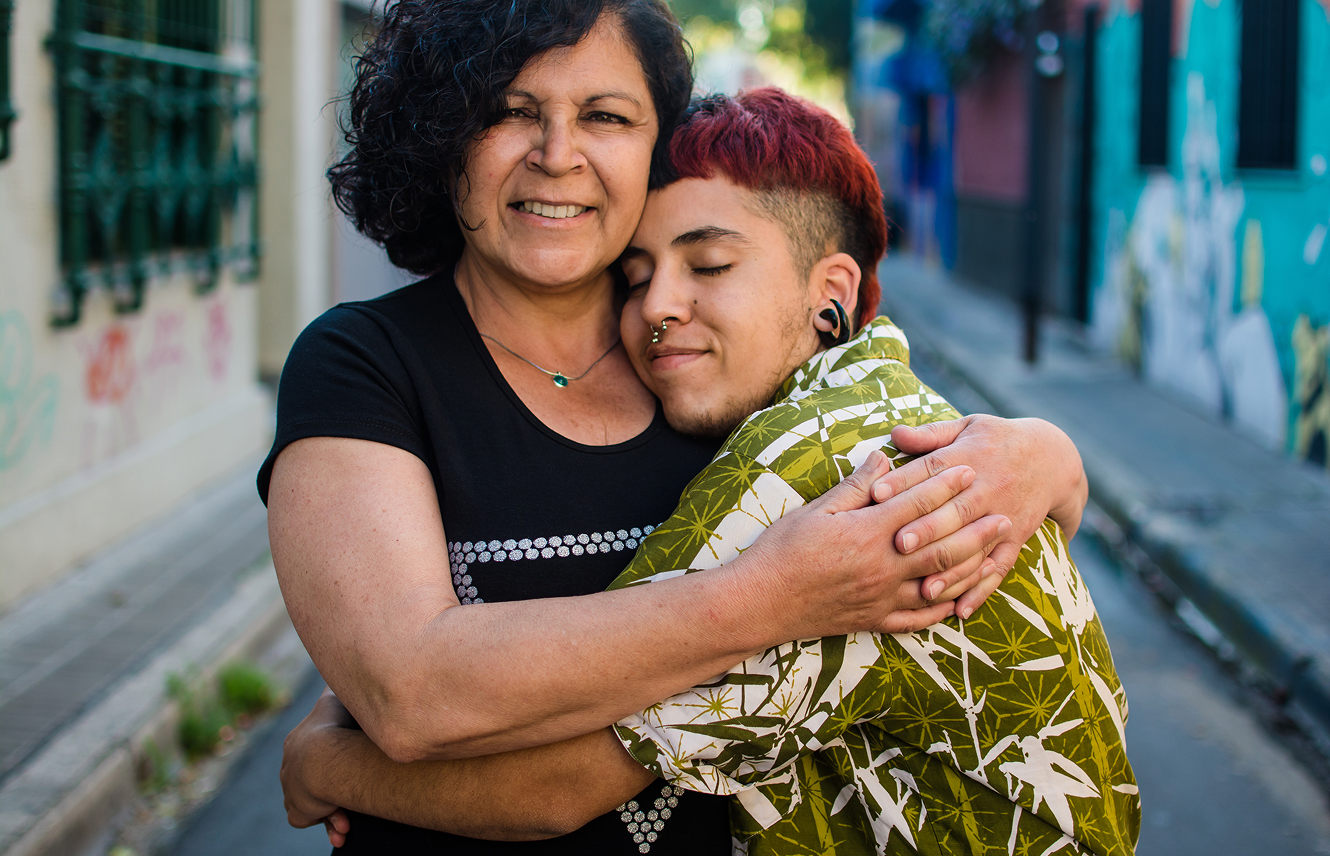No matter the policy climate, family support is a powerful buffer against suicide, depression, and anxiety for trans young adults.

Key Findings
Compared to transgender young adults age 18 to 24 with low family support, those with high family support:
Report significantly lower rates of depression (25% vs. 49%), anxiety (33% vs 51%), and suicide ideation (16% vs 32%). Have better access to healthcare, including lower rates of avoiding care due to fear of discrimination (21% vs 33%) and higher rates of having a primary care provider (27% vs 18%).Are more likely to be covered under a parent’s health insurance plan (35% vs 19%).Are more likely to have previously been prescribed gender-affirming hormones (34% vs 24%)
Background
The mental health of young adults in the U.S. continues to worsen, with an estimated 25%of those aged 18 to 24 currently experiencing depression (Saad, 2025; Witters, 2023). Transgender and gender diverse young adults often experience even higher rates of anxiety, depression, and suicidal ideation, due in part to stigma, discrimination, and barriers to accessing affirming care (Witten 2023; Chen 2023).Family support has been widely recognized as a powerful protective factor in LGBTQ health. Strong parent and caregiver relationships are consistently linked to lower rates of depression, anxiety, and suicidal ideation among LGBTQ youth (DelFerro, 2024; McConnell, 2016). For transgender youth, in particular, family support is associated with higher self-esteem, greater well-being, and increased access to gender-affirming care (Turban, 2020).
In contrast, family rejection is a key driver of minority stress—a chronic form of psychological strain caused by stigma and lack of acceptance—which has harmful effects on mental health (Meyer, 2003; Toomey, 2021). These challenges often arise in daily life as transgender young people navigate unsupportive home, school, and community environments. Youth without affirming families are more likely to experience suicidal ideation, delay needed care, or run away from home (Campbell, 2024).While the connection between family support and mental health is well documented, less is known about how family support influences healthcare access. Supportive families may help young adults navigate complex systems of care, maintain health insurance coverage—especially through family policies—and initiate gender-affirming treatments earlier.
Yet these potential access-related benefits are rarely studied directly. It also remains unclear whether family support can buffer against external barriers to care, such as those created by policy.Across the U.S., the policy environment for transgender people varies widely. Some states have enacted policies that protect access to gender-affirming care and prohibit discrimination, while others have introduced bans or restrictions on care for trans youth and young adults (MAP, 2025). These state-level factors undoubtedly shape access to care and mental health—but it is unknown whether family support can provide an independent, protective effect in more hostile environments.
Among transgender adults, family acceptance remains a critical predictor of mental health and healthcare engagement (Puckett, 2019). Still, only 29% of transgender young people report receiving high levels of family support (Price, 2025), suggesting that many continue to navigate care systems and stigma without that foundation.Parents and caregivers often want to support their transgender child, but may feel uncertain about what that looks like in practice (MAP, 2019). This underscores the need for research that not only documents the prevalence of family support—but also clarifies the concrete impact it can have on both mental health and access to care.
In this brief, we use data from transgender and gender diverse young adults (ages 18 to 24) seeking gender-affirming hormone therapy through FOLX Health, a national telehealth provider. We examine how family support varies across individuals, and assess its relationship to mental health, suicidal ideation, and healthcare access—including having a primary care provider, previous hormone use, and insurance coverage.
We also adjust for age, race/ethnicity, education, and hormone type to test whether the effects of family support are robust across diverse populations and policy environments. Findings shed light on the unique and potentially protective role that family support can play—even in a challenging political landscape.
In this brief, we use data from transgender and gender diverse young adults (ages 18 to 24) seeking gender-affirming hormone therapy through FOLX Health, a national telehealth provider. We examine how family support varies across individuals, and assess its relationship to mental health, suicidal ideation, and healthcare access—including having a primary care provider, previous hormone use, and insurance coverage.
We also adjust for age, race/ethnicity, education, and hormone type to test whether the effects of family support are robust across diverse populations and policy environments. Findings shed light on the unique and potentially protective role that family support can play—even in a challenging political landscape.
Results
More likely to have insurance coverage, particularly through a family member’s policy.


